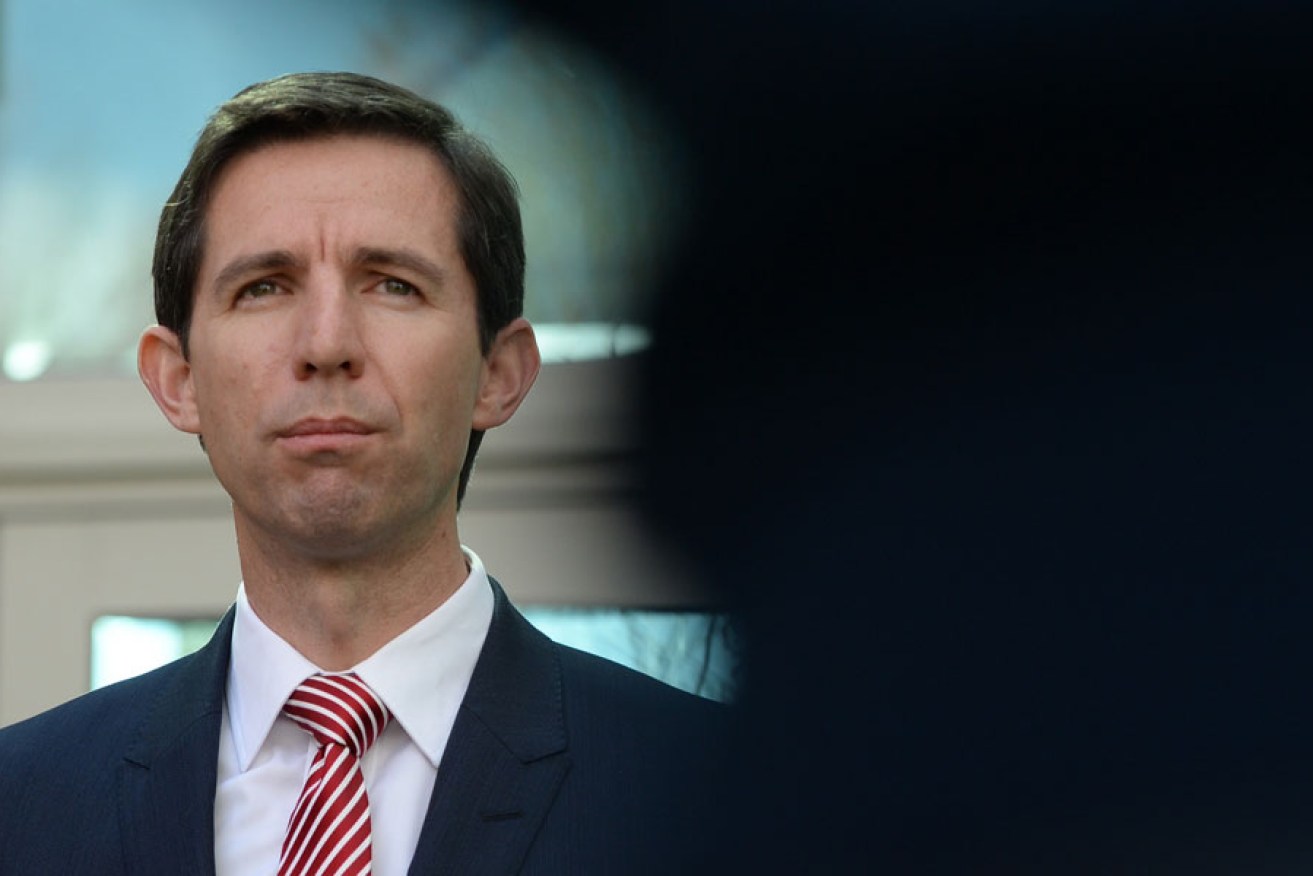Uni students prepare to fight federal budget blow
University students have wasted no time marshalling forces to fight the Turnbull government’s plan to increase course fees and require earlier repayment of tuition debts.

Simon Birmingham. AAP image
The government has revamped its controversial 2014 budget package of changes by dumping plans for deregulated course fees and a 20 per cent cut in funding for universities.
Instead students will have to pay up to $3600 more for a four-year university degree and start paying back their loans as soon as their income reaches $42,000.
The most expensive degree, medicine over six years, would cost $71,900, up from $68,000.
Universities will be subject to a $2.8 billion “efficiency dividend”.
The government will require the share of university fees covered by students to increase “slightly” from 42 per cent to 46 per cent of course costs, while the load carried by government will drop from 58 per cent to 54 per cent.
Education Minister Simon Birmingham describes the measures as “relatively modest when you boil them down to the impact on students and their fees”.
But students are not impressed, saying the “massive drop” in the HECS-HELP repayment threshold from $56,000 to $42,000 was the worst change to student debt in more than a decade.
“The government is out of touch when they tell students they should pay even more for their education while they let corporations, making billions, pay no tax,” said Jenna Schrodes from Sydney University Student Representatives Council.
Students are planning what they say will be a rowdy protest around the country on Wednesday.
National Union of Students president Sophie Johnston said the package was “a war on students and young people”.
Birmingham defended the changes, arguing the existing student loan book debt of $52 billion is unsustainable.
“The last thing I want to do is to see a future minister in my shoes in a position where they say ‘this loan scheme is no longer affordable’,” he told ABC radio on Tuesday.
Labor has welcomed the government’s decision not to proceed with fee deregulation, but education spokeswoman Tanya Plibersek questioned giving big business a tax cut at the same time student fees were being increased and efficiency dividends imposed on universities.
University of Sydney vice-chancellor Michael Spence says the package was a budget disaster averted, but nor was it great.
“Students will be paying more but universities will be receiving less so that doesn’t sound like a good formula for the knowledge economy,” he told ABC radio.
Monash University vice-chancellor Margaret Gardner disagreed with the minister’s argument the university funding changes were fair.
“The universities are important to jobs growth, ideas for the future and they constitute Australia third largest export industry,” she said.
Universities Australia chief executive Belinda Robinson says the cuts run counter to the government’s innovation and skills agenda which aims to keep highly-skilled jobs in Australia in a competitive global economy.
Australian Industry Group chief executive Innes Willox says there is a lot in the package to like, especially measures to make students more job-ready and extra engagement between institutions and employers.
Birmingham hopes Labor will support the package but has already started discussions with Senate crossbenchers just in case.
– AAP




